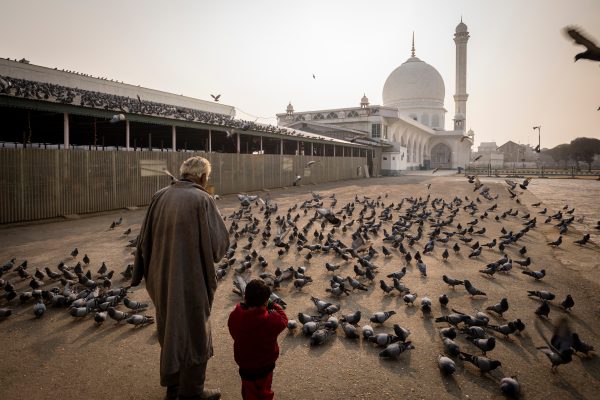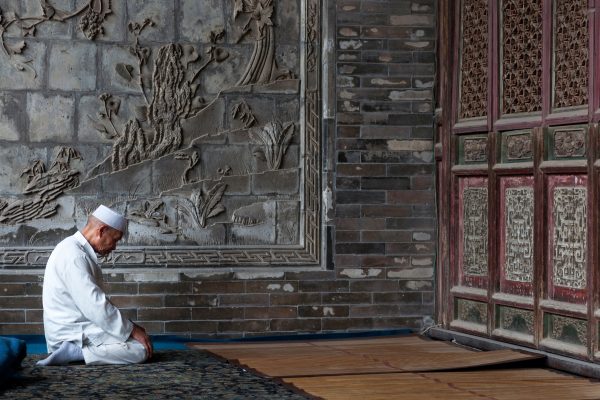In the US, around 2 million people are incarcerated as of 2023, and around 50% of the prison population is serving a decade or more as of 2019.
In the US, around 2 million people are incarcerated as of 2023, and around 50% of the prison population is serving a decade or more as of 2019.
The United States of America is known for being the leading country for many things. It has one of the largest economies, one of the largest film industries, and … one of the largest prison populations in the world. Around 2 million people are incarcerated as of 2023 [1], and around 50% of the prison population is serving a decade or more as of 2019 [2].
The main question many social workers and criminal justice officials are asking is how effective prisons really are. Supposed to be a rehabilitation technique, a tool to guide many to the ‘straight and narrow’, many prisons offer little holistic growth to their populations. This is seen especially in recidivism rates (68% of people were re-arrested from 2005-2014 [3]).
Overpopulated and understaffed, most prisons fundamentally serve as basic housing units and lack the resources to make a lasting change for incarcerated individuals. While many of these individuals can be helped, and might even want to be, they simply aren’t being helped in the way they should be, without the proper opportunities and resources.
To people incarcerated, finding a community and a role model is vital to proper rehabilitation. Such was the case with famous leader Malcolm X. After being convicted of burglary, Malcolm X found a role model in Elijah Mohammad to find a purpose in life, and to help him grow his character.
However, it isn’t always this easy for people to find a good role model or a supportive community. One problem inmates often face is overcoming various stigmas and getting people to empathize with them and realize that they are just humans, who just like the rest of us, aren’t perfect, and have made their fair share of mistakes. While it is important to note that some inmates are incarcerated for valid reasons and have hurt or wronged others in some way, this doesn’t mean they should be written off completely.
Islam does not support the notion of “once a criminal, always a criminal”, rather we are taught the importance of second chances, and forgiveness. A person’s true character is not for us to judge, it is for God to see. Additionally, some inmates may be wrongly incarcerated or imprisoned for excessive amounts of time due to harsh sentencing laws. Even if someone is locked away, the key to their lock shouldn’t be discarded, it should be saved with the hope that one day they will gain freedom, physically and otherwise.
When talking about incarceration, it would be amiss to not discuss the imprisonment of holy figures. Prophet Yusuf, notable companions and family members of the Prophet Muhammed, and even some of the Ahlulbayt were imprisoned. These people survived imprisonment not just through taqwa, but also with support from their community and other Muslims who went out of their way to help and support them.
One way to counteract this stigma around prisoners is to emphasize forgiveness. Forgive yourself, forgive others, and seek forgiveness from God. Helping inmates through this journey is important to cultivate a community that is supportive and true to the teachings of the Prophet (ṣ).
One of the most important things in a community is our ability and our drive to help people meet their needs, specifically, in this case, the incarcerated. It is our responsibility to give people second chances, just as God has given us a limitless supply of them over our lifetime. The non-profit 2ndChance Books strives to do just this.
By providing a variety of services to those in prison, 2nd Chance aims to provide an opportunity for holistic rehabilitation. 2nd Chance’s mission is centered around reformation and providing tools to give incarcerated individuals the ability to stop going through that revolving door, where inmates can better themselves and reach a higher purpose. Their approach focuses on using empathy and forgiveness to connect with inmates. They do this in multiple ways, such as sending out quarterly publications of the Sirat Link Magazine, fostering direct communication between religious scholars and inmates, and providing Qurʾāns, prayer mats and much more. The spiritual guidance they give is structured to be well-rounded to address all aspects of daily life and emphasize that Islam is a way of life anyone can follow.
“They feed the needy, the orphan, and the prisoner, out of love for Him.” (Quran 76:1)
Sources
Butler, Paul, et al. “How Atrocious Prisons Conditions Make Us All Less Safe.” Brennan Center for Justice, 23 Aug. 2021, https://www.brennancenter.org/our-work/analysis-opinion/how-atrocious-prisons-conditions-make-us-all-less-safe.
Nazgol Ghandnoosh, Ph.D. and Ashley Nellis. “How Many People Are Spending over a Decade in Prison?” The Sentencing Project, 10 Oct. 2022, https://www.sentencingproject.org/policy-brief/how-many-people-are-spending-over-a-decade-in-prison/.
Wagner, Wendy Sawyer and Peter. “Mass Incarceration: The Whole Pie 2023.” Prison Policy Initiative, https://www.prisonpolicy.org/reports/pie2023.html#:~:text=Together%2C%20these%20systems%20hold%20almost,centers%2C%20state%20psychiatric%20hospitals%2C%20and.





